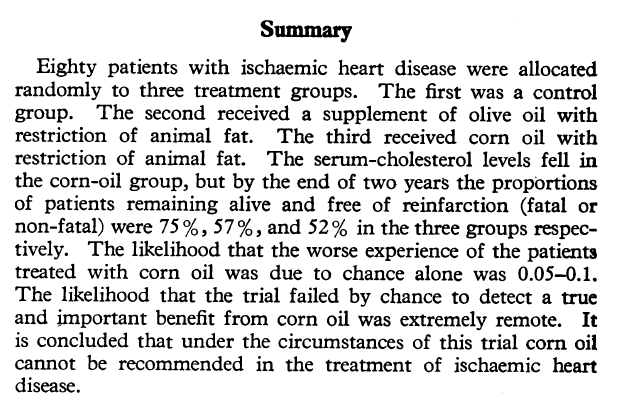Can’t find the source (maybe a tweet?), but not long ago I read something from Zoe Harcombe which, IIRC, condemned consumption of olive oil.
Steve Phinney, OTOH, is a big proponent of olive oil, and said in at least one of the Low Carb Down Under videos that he has personally had his gallon jugs of “Kirkland” brand olive oil from Costco tested at his own expense (about $200) on two different occasions to verify that they are real olive oil, and not adulterated with seed oils as some “evoo” is known to be (Costco passed).
Since Phinney has been doing low-carb research since probably when Harcombe was in kindergarten*, I’m inclined to bet he’s correct in the absence of other information. Does anyone know what evidence Harcombe cites against olive oil? Or am I just confused about what she said?
*My efforts to find her birth date were limited to checking Wikipedia. There is no entry there for her.








